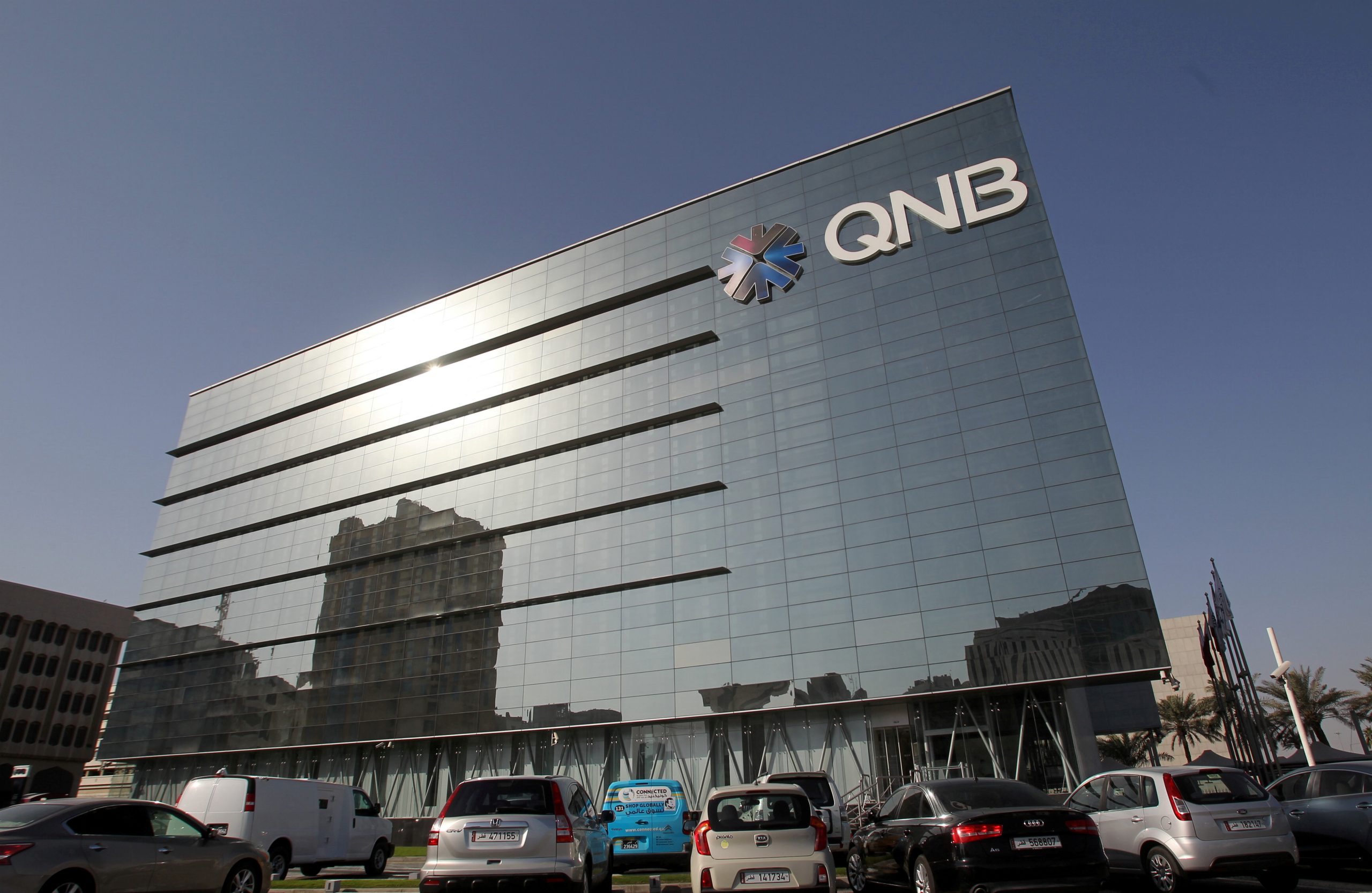QNB Says Ukrainian Crisis Could Lead to Major Supply Shocks, Unlikely to Affect Demand
بنك قطر الوطني: الأزمة الأوكرانية تؤدي لحدوث صدمات كبيرة في جانب الإمداد وليس في الطلب
QNA
Doha: QNB said in its weekly commentary that the Ukrainian crisis will lead to big shocks to supply, but is unlikely to affect demand globally as much.
The report said that this imbalance will lead to rising inflation and goods shortages all over the world, which would in turn increase financial risks as a result of these shocks. It also lamented the constant shocks the 2020s seem to be bringing so far, saying that “just when the global economy was seemingly turning the page from the COVID-19 pandemic, another significant event is producing negative geopolitical and economic consequences: the Russo-Ukrainian conflict.”
QNB said that the sanctions imposed by the US and the EU on Russia has quickly disrupted the latter’s economy, and left it largely isolated from the rest of the world in just one month. The report shed light on the main economic consequences of the crisis.
“The direct impact of the conflict on global demand is rather limited, due to the sheer size of both the Russian and Ukrainian economies,” the report said.
The report noted that the small contribution of both Russia and Ukraine to the global economy, estimated at slightly more than 2 percent, means the magnitude of a downturn in their respective economies will have a small effect on the rest of the world in terms of demand.
However, their natural resource base is large and disruptions can indirectly affect the global economy via supply shocks in commodity markets. Russia is the worlds largest transcontinental country with a territory that spans over eleven time zones and include massive deposits of natural resources, such as crude oil, natural gas, minerals precious metals and arable land. In fact, both Russia and Ukraine are important producers of fertilizers, wheat and other key products for the food industry. Hence, Russian and Ukrainian military action and sanctions are causing supply destruction at a large scale, severely stressing key commodity markets. This will produce higher global inflation and lower disposable income across countries, negatively affecting demand. This will further intensify stagflationary pressures (the trend of lower growth and higher prices). Vulnerable emerging markets will likely suffer from a deterioration of fiscal and current account positions. In the extreme cases, low-income countries can face mass food shortages and civil strife.
Another factor the commentary mentioned was that the impact of commodity price spikes and asset destruction can be significant for commodity houses, brokerage firms and banks with direct exposure to Russia. Some signs of financial stress are already starting to emerge, as money market spreads are widening and Far East Asian commodity houses are experiencing multi-billion USD margin calls. If such issues continue, there could be a sudden deleveraging in commodity markets, due to supply disruptions and collateral destruction. Cascading credit events in commodity markets could affect banks and other institutions that provide funding for such activities. In addition, Eastern European banks with exposure to Russia can also suffer significant losses, stressing the European financial system.
The report concludes by saying that the crisis and its accompanying sanctions could lead to more supply shocks, particularly in commodity markets, which could amplify inflation and pose potential financial risks for banks with exposure to Russia.
قنا
الدوحة: أكد التقرير الأسبوعي لــ/ بنك قطر الوطني QNB / أن الأزمة الأوكرانية والعقوبات المصاحبة لها تؤدي إلى حدوث صدمات كبيرة في جانب الإمداد، وليس في جانب الطلب، من الاقتصاد العالمي.
وأضاف التقرير أن هذا الأمر يحدث عبر أسواق السلع الأساسية، مما يؤدي إلى تصاعد التضخم ونقص الموارد في جميع أنحاء العالم. كما تتزايد المخاطر المالية بسبب الآثار المباشرة وغير المباشرة للصدمات على المؤسسات المالية وتجار السلع.
ولفت بنك قطر الوطني في تقريره إلى أن عشرينيات القرن الحالي أثبتت أنها ستكون فترة من الاضطرابات المصحوبة بصدمات وعدم يقين. “فبمجرد أن بدأ الاقتصاد العالمي يطوي صفحة جائحة كوفيد-19، وقع حدث مهم آخر له عواقب جيوسياسية واقتصادية سلبية، وهو الأزمة الروسية – الأوكرانية”.
وأشار إلى أنه في أعقاب التصعيد العسكري الروسي، قررت الولايات المتحدة والاتحاد الأوروبي دعم أوكرانيا من خلال فرض عقوبات اقتصادية شاملة على روسيا.
ولخّص تقرير / بنك قطر الوطني QNB / العواقب الاقتصادية للأزمة الروسية الأوكرانية في نقطتين رئيسيتين، الأولى أن التأثير المباشر لهذه الأزمة على الطلب العالمي محدود نوعاً، وأن الصراع في أي من البلدين، من المرجح أن يكون تأثيره المباشر على الطلب صغيراً على مستوى العالم، نظراً لحجم الاقتصادين الروسي والأوكراني.
وقال التقرير إن الناتج المحلي الإجمالي الاسمي لروسيا يبلغ 1.5 تريليون دولار أمريكي وتدفقات تجارية تبلغ 600 مليار دولار أمريكي، لتمثل روسيا أقل من 2% من النشاط الاقتصادي العالمي أو التجارة العالمية. أما أوكرانيا، التي يبلغ حجم اقتصادها 155 مليار دولار أمريكي وتبلغ تدفقاتها التجارية 100 مليار دولار أمريكي، فهي تمثل نسبة أقل من ذلك بكثير في النشاط الاقتصادي العالمي.
وفي تفصيله للنقطة الثانية للعواقب الاقتصادي للأزمة الروسية الأوكرانية، أشار التقرير إلى أنه بالرغم من أن الحجم الاسمي غير الكبير الاقتصادين، فإن قاعدة مواردهما الطبيعية كبيرة ويمكن أن تؤثر الاضطرابات بشكل غير مباشر على الاقتصاد العالمي من خلال صدمات الإمداد في أسواق السلع الأساسية.
وأضاف التقرير “تعد روسيا أكبر دولة عابرة للقارات في العالم، وتمتد على إحدى عشرة منطقة زمنية وتتضمن مخزونات ضخمة من الموارد الطبيعية، مثل النفط الخام والغاز الطبيعي والمعادن الثمينة والأراضي الصالحة للزراعة. في الواقع، تعد كل من روسيا وأوكرانيا منتجين مهمين للأسمدة والقمح ومنتجات رئيسية أخرى لصناعة المواد الغذائية. ومن ثم، فإن الأعمال العسكرية الروسية الأوكرانية والعقوبات تتسبب في تدمير الإمدادات على نطاق واسع، مما يضغط بشدة على أسواق السلع الأساسية”.
وبيّن التقرير ان هذا الأمر سيؤدي إلى ارتفاع معدل التضخم العالمي وانخفاض الدخل المتاح عبر البلدان، مما سيؤثر سلباً على الطلب. وسيؤدي ذلك بدوره إلى زيادة تكثيف “ضغوط الركود التضخمي”، أي الاتجاه نحو انخفاض النمو وارتفاع الأسعار.
ورجح التقرير أن تعاني الأسواق الناشئة الضعيفة من تدهور الأوضاع المالية العامة والحسابات الجارية. وفي الحالات القصوى، يمكن أن تواجه البلدان منخفضة الدخل نقصاً شاملاً في الغذاء.
علاوة على ذلك، في حين أن التكامل المالي بين روسيا وبقية العالم صغير نسبياً، فإن تأثير ارتفاع أسعار السلع الأساسية وتدمير الأصول يمكن أن يكون ذا أهمية كبيرة لشركات الاستثمار في السلع الأساسية وشركات الوساطة والبنوك ذات الانكشاف المباشر على روسيا، بحسب التقرير.
وحذر التقرير الأسبوعي لــ/ بنك قطر الوطني QNB / من أنه إذا استمرت مثل هذه المشكلات، فقد تكون هناك موجة مفاجئة من خفض الديون في أسواق السلع الأساسية، بسبب اضطرابات العرض والتأثير السلبي الجانبي. ويمكن أن تؤثر الأحداث الائتمانية المتتالية في أسواق السلع على البنوك والمؤسسات الأخرى التي تقدم التمويل لمثل هذه الأنشطة. بالإضافة إلى ذلك، يمكن أن تتكبد بنوك أوروبا الشرقية التي لديها انكشاف على روسيا خسائر كبيرة، مما سيضع ضغوطا على النظام المالي الأوروبي. وبالتالي، يمكن أن تؤدي الصدمات المالية السلبية إلى زيادة الضغوط السلبية الحالية على النمو العالمي.




